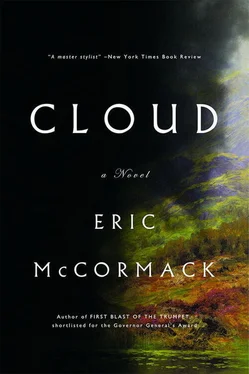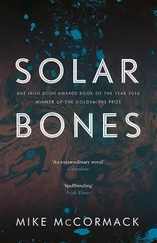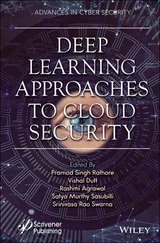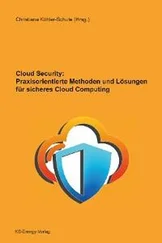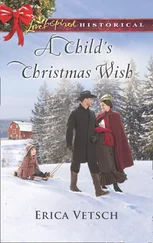BUT I DIDN’T GO BACK in the direction of the Strath Hotel. On my way to the centre I’d realized that the area wasn’t all that far from the house where I’d lived with Deirdre, the cat lady, and Jacob, the violinist. I’d never forgotten the kindness of that odd pair to me in my time of need and wondered if they might still live there. When I arrived at where their house should have been, however, I saw that the entire part of the street had also been levelled long ago. A number of ultra-modern university residences now took up the space.
Again I felt sad, as well as slightly paranoid — as though some malevolent force had set out to erase all of these important traces of my former life. But of course, that was nonsense. Time and Progress were at work — there was nothing personal in it. They’d not the slightest interest in the nostalgic longings of Harry Steen from the Tollgate. I turned away and walked back towards the Strath.
I ATE SOME LUNCH then went to my room and scribbled a few pages of notes on what the curator had told me while it was fresh in my mind. I’d promised Frank I’d give him as complete an account as I could when I got home. Afterwards, still quite tired after my restless night, I lay down and tried to nap for an hour. But it was useless. Two main contenders — fascination over the new information the curator had given me and uncertainty about the upcoming journey to Duncairn — fought an all-out battle for my attention. Mere sleep didn’t stand a chance.
In the end, I got up, packed my bag, paid my bill, and set out for the Uplands. By the time I’d got to the outskirts of Glasgow, a mix of city smog and snow had slowed traffic enough for me to realize that the journey might take a good deal longer than I’d planned. The drive south was like a funeral procession all the way to the coastal town of Ayr, where I stopped for a sandwich and a cup of coffee. It was pitch-dark now, and I contemplated finding a hotel for the night. But the snow had begun to slacken off enough that I decided to keep going. I set out along the winding eastern road into the hills.
Even though the snow was light, I had to drive cautiously, so it was all of two hours before I came through a pass in the hills— and suddenly I was in Duncairn. The road from the coast now became, for the next half mile, the main street through the town. It was lined at intervals by lampposts of the gallows type, with feeble bulbs hanging from many of them.
I’d been prepared for a town that was more or less rubble, after what Marsha Woods had told me. But from what I could see the roofs and walls of the buildings were fairly intact, though many of the windows were broken and there was no sign of people. Certainly, there were no footprints on the snow of the sidewalks or tire marks on the road. So Duncairn was still here, though it seemed to be a ghost town.
I reached the town square, noting the deserted buildings that had once been Kirk’s Pharmacy, the police station, and Mackenzie’s Café. The war memorial in the little park seemed to have survived, the three bronze soldiers with bayonets still at the ready, straining with blind eyes towards an invisible enemy. The Bracken Inn, on the corner of the square, was the only building that was lit up. I parked on the street in front, got my bag from the trunk, and hurried through its door.
During my long-ago stay at Duncairn I’d never been inside, but from the look of the lobby, it probably hadn’t changed much since then. The floral carpet was wilted and worn, a set of yellowing stag horns jutted out over the front desk, and the photographs of long-ago revellers on the walls were mostly in black and white. Scratchy piped music and the smell of fried meat filled the air.
I rang the desk bell and waited. A thin, middle-aged woman came along a dark passageway to greet me.
“Yes, there are indeed rooms available,” she said in answer to my inquiry. She had a southern English voice. I filled in the various pieces of information she needed. She gave me a room key and said the dining room would be open till eight.
My room on the second floor was ordinary enough, with the usual hotel furnishings. I stood for a while at the window — it looked over the square — then sat on the bed, overwhelmed with sadness. No doubt it was a normal reaction, coming back to a place you haven’t been in for many years — a deeper awareness of your own mortality, and that the world will persist without your presence.
Again, I wondered if that was why I’d never returned to Scotland. Often, over the years, whenever I’d tried to envisage myself as I was when I last saw Duncairn, it was like remembering a character from a book I’d read a long time ago.
It was almost eight o’clock and I thought of going downstairs for dinner, but suddenly I felt drained of all energy. It wasn’t so much the physical miles I’d travelled in the last two days, but the much vaster journey backwards in my mind that seemed to have exhausted me. I undressed, got into the cool bed, and within minutes was fast asleep.
I WAS UP THE NEXT morning around seven-thirty, hungry. I went downstairs to the dining room with its old-fashioned checkeredcloth-covered tables. The bacon and eggs were good and I ate with relish.
Afterwards, as I passed through the lobby, the Englishwoman was back at the desk doing some paperwork. She asked me how I’d slept and we chatted for a while. She seemed to welcome the opportunity to talk to a stranger.
She was, in fact, the owner of the inn: she’d inherited it fifteen years before from her uncle. Around that same time, the town’s decline had begun when the coal seam in the mine started to peter out, making the extraction process lengthy and unprofitable. The English owners of the mine (one of them was the uncle who’d left her the inn) decided to shut the operation down.
From that moment, according to the Englishwoman, the townspeople began to leave. Within a few years Duncairn became more or less deserted, the inn being used mainly as a base for visiting fishermen and grouse shooters. Occasionally, though, her guests were old townspeople who’d come back to visit the cemetery, or just to look over what was left of the place where they’d been born and brought up.
“They’re very sentimental about Duncairn, and I appreciate their business,” said the Englishwoman. “But I’m not sentimental. If there’s any charm in the ruins of things that were once useful, I haven’t noticed. I’d sell the inn at the drop of a hat if anyone would buy it.”
I confessed to her that I myself had once lived in the town a very short time: I’d been hired to teach here, but the job didn’t work out. I wondered about the school.
“Ah, the school,” she said. “Well it’s gone now too. It closed around the same time as the mine, and the school building’s been demolished. The principal carried on living in Duncairn for years afterwards, though. He’d often drop in for a glass of beer.” She frowned, remembering. “Sam Mackay was his name, a very nice man. He’s dead now. His wife died five or six years ago, too.”
I didn’t show how shocked I was to hear this.
“Yes,” she said. “I saw her quite a few times, but I didn’t really know her. She was buried beside him in the graveyard. Most of the townspeople had already moved out of Duncairn by then, so not many attended either of their funerals. You can still see their big house up in the moors. No one lives there anymore, so I’m sure it must be quite rundown by now.”
BACK IN MY ROOM, I sat for a while trying to absorb what I’d heard. Over recent years, I’d considered the possibility that Miriam might be dead. But I hadn’t considered it often or seriously. Rarely had a day passed, in fact, when I hadn’t thought about her and hoped she might be thinking fondly of me. Now the shock of hearing about her death made me feel empty to the core. I suppose in many ways she’d always been central to my entire sense of who I was.
Читать дальше
